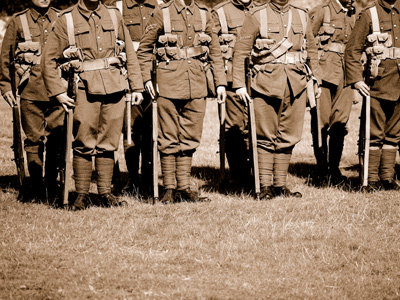
The First World War 05
As a student of KS3 history, you may have heard about the lost generation of young men who sacrificed their lives during World War One. It can also be used in the sense that lost means disorientated and directionless in life, as that described how many of the young survivors felt after the war. The horrors they had seen and the constant noise and stress deeply affected the minds of many people coming back from the war. The condition of being shell shocked was applied to people who suffered from a nervous breakdown during the war. In extreme cases, the condition lasted many years after the war had finished.
During the First World War, many people were moved to write poems about their experiences. Vera Brittain was a nurse who lost her brother, fiancé and a close friend and Eleanor Farjeon, the author of books for children, were two of them not directly involved in the fighting at the front line.
Ready for more?
not all...
quizzers. Try to win a coveted spot on our Hall of Fame Page.







